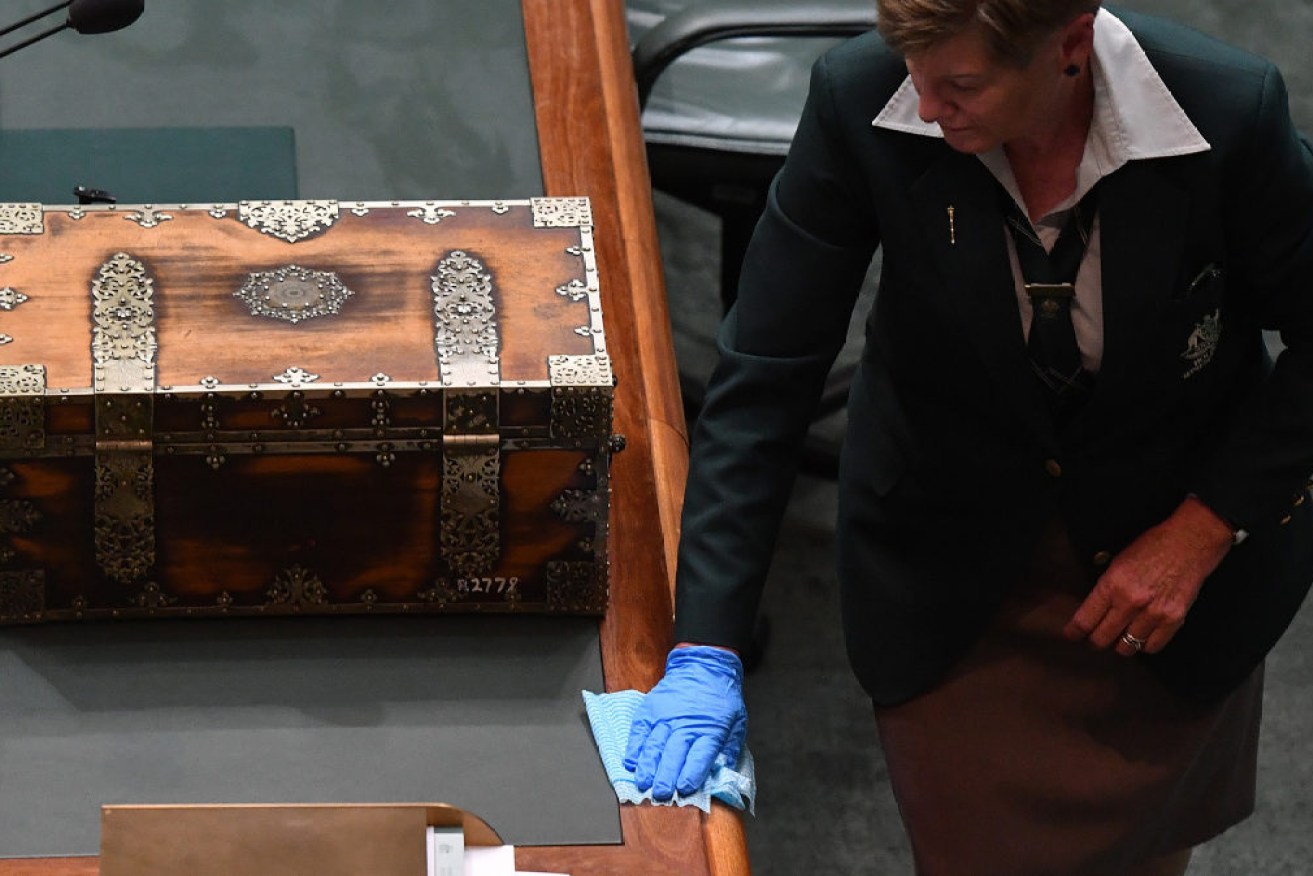Coronavirus shutdown shows it’s time for Australia to have a virtual parliament


Scott Morrison has pressed pause on parliament due to coronavirus fears, but there is a better way. Photo: Getty
With an increasing number of COVID-19 cases being reported across the country, especially in Melbourne and Sydney, the next scheduled sitting of the federal Parliament has just been cancelled.
This means the country will continue to be run by a government that cannot be held accountable by the opposition and other non-government MPs.
Perhaps it’s time for a virtual parliament?
This is, after all, the 21st century. We have the technology. Why not use it?
According to constitutional lawyer Professor Anne Twomey there is nothing in the Australian Constitution preventing Parliament being held online.

There is nothing in the constitution preventing parliament from being held online. Photo: AAP
Every four years America elects a president.
The vote occurs in November but the winner doesn’t take office until late January.
That’s because 200 years ago they needed time for messengers from each of the states to ride to Washington DC to deliver their result.
Steeped in the observance of history this bizarre practice continues despite the fact that the outcome is known within hours or days of the poll.
For hundreds of years MPs have crammed into a remarkably small room in London to argue over and pass the laws that govern the United Kingdom. They have recently been trialling a virtual Westminster.
At the turn of the last century we had a heated debate over where to place our national capital so we dug a hole, created a lake, and built Parliament House in a remote location far enough away from the coast that it couldn’t be shelled by enemy warships.
Back when I was a 20-something ministerial adviser, the New South Wales Parliament regularly did ‘all-nighters’. Why?
I guess because they always had done. While at best a handful of MPs were in the chamber the rest were asleep in their offices, or in the Member’s Bar.
We’ve junked plenty of historical precedents when it has suited us – in particular the practice of ministers resigning their portfolios when they or their department stuff-up.
These days, even misleading Parliament, which was once an automatic sacking office, is barely seen as an offence.
Right now, as we deal with the coronavirus, people are being required to work or study online at home.
It’s thought that in future remote working will become far more common.
A much-needed decision has finally been made to allow bulk-billing of telehealth consultations so people don’t have to go to their doctor’s surgery.
These days most businesses operate using teleconferences, the board meetings of many companies, large and small, are likewise held online.
We can expect to see a raft of online annual general meetings. So, why can’t we have remote sessions of our parliaments?
A constant criticism and a notable downside is the impact on federal MPs and senators required to spend so much time away from their families – with the consequent impact on mental health, occasionally confirmed by some of our higher-profile politicians.
Question time is a big part of the theatre of Westminster-style parliaments – but most of the opposition’s questions inevitably are asked by the Opposition Leader or a handful of senior frontbenchers.
As for the government’s questions, these are mostly what are called Dorothy Dixers – meaning they were written by the minister being questioned or their staff.
The standard uninspiring opening line is: “Can the minister update the House on …”
Despite all the huffing and puffing most legislation is passed routinely on the numbers.
It’s a rare event when an MP or senator changes their voting intention on the basis of a debate in the chamber.
There’s a lot to be said for having all our elected representatives in the same place as they fashion the laws that govern us – in normal times.
But right now, a virtual parliament would be better than no parliament.
Laurie Patton was a Commonwealth Public Servant before becoming a ministerial adviser in the Wran Government and has advised federal and state government ministers, mostly Labor, for more than three decades. He reported on federal politics and later held senior executive roles at the Seven Network. This article, since updated, first appeared in The Lucky General.








